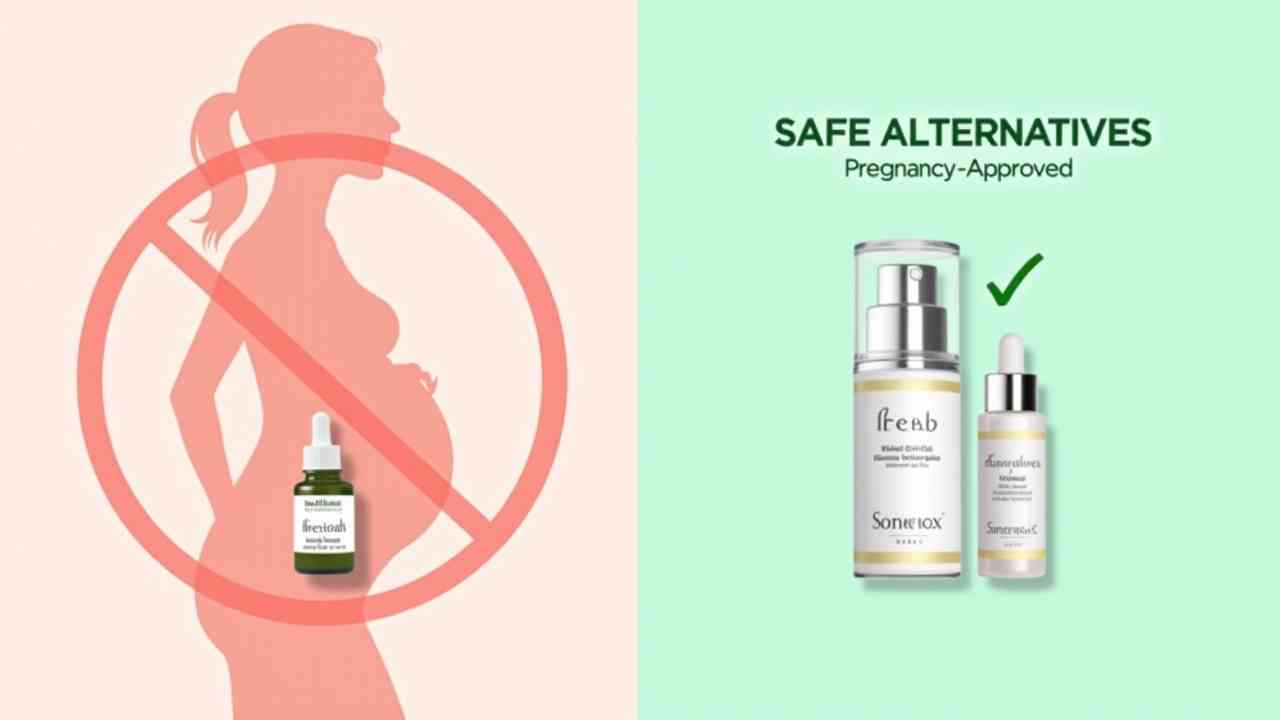
🤰 Can Pregnant Women Use Retinol Alternatives? A Safety Guide
🤰 A Dermatologist's Guide to Pregnancy-Safe Retinol Alternatives 🤰
❗ CRITICAL MEDICAL WARNING: Skincare during pregnancy requires extra caution. You must always consult with your OB/GYN or a board-certified dermatologist before starting or continuing any skincare product, especially those with active ingredients. This guide is for informational purposes only and is not a substitute for professional medical advice.
When you become pregnant, your skincare routine needs a major overhaul. One of the first and most important ingredients to be eliminated is retinol. This can be difficult for skincare lovers who rely on it for its amazing anti-aging and acne-fighting benefits. This leads to a common question: can pregnant women use retinol alternatives?
The great news is, yes! You do not have to give up on your skincare goals for nine months. There are several fantastic, effective, and, most importantly, pregnancy-safe ingredients that can give you a beautiful glow. ✅
🚫 First, Why Are Retinoids a Strict 'No' During Pregnancy?
Retinoids are a class of Vitamin A derivatives. This includes over-the-counter retinol and prescription-strength tretinoin. They are known teratogens. This means that in high doses, they have been shown to cause birth defects. While the risk from topical application is low, it is not a risk worth taking. For this reason, all retinoids are strictly forbidden during pregnancy and breastfeeding.
- What Are the Best & Safest Retinol Alternatives?
If you are looking for that anti-aging, texture-smoothing effect, there are several wonderful ingredients that are generally considered safe for use during pregnancy. Here are the top dermatologist-recommended alternatives.
1. What is Bakuchiol? (The Plant-Based Star)
Bakuchiol is the most famous and direct retinol alternative. It is a plant-based antioxidant extracted from the babchi plant. Amazingly, studies have shown that it provides very similar benefits to retinol—like stimulating collagen and reducing fine lines—but without the irritation. It is a fantastic anti-aging ingredient that is widely considered safe for use during pregnancy.
2. Why is Azelaic Acid a Pregnancy Hero?
Azelaic acid is another powerhouse ingredient that is a top choice for pregnant women. It is fantastic for treating both hormonal acne and hyperpigmentation (like melasma, the "mask of pregnancy"), which are very common pregnancy skin concerns. It is gentle and has a strong safety profile.
3. How Does Vitamin C Help?
A good Vitamin C serum is a perfect morning-routine staple during pregnancy. As a powerful antioxidant, it helps to protect your skin from environmental damage. It also works to brighten the skin and can help to inhibit the pigment production that leads to melasma.
4. What About Exfoliating Acids?
This is an area where you need to be a bit more cautious. High-concentration peels should be avoided. However, low-concentration chemical exfoliants containing glycolic acid or lactic acid are generally considered safe for occasional use during pregnancy. They can help with dullness and texture. You must discuss the specific product with your doctor.
⭐ What's the Bottom Line?
The most important rule of pregnancy skincare is safety first. The cool, crisp autumn air is a great time to focus on a gentle, nourishing routine. While the retinol alternatives listed here are generally considered safe, you must get the all-clear from your doctor for every single product you use. Your peace of mind and your baby's health are the top priorities. ❤️